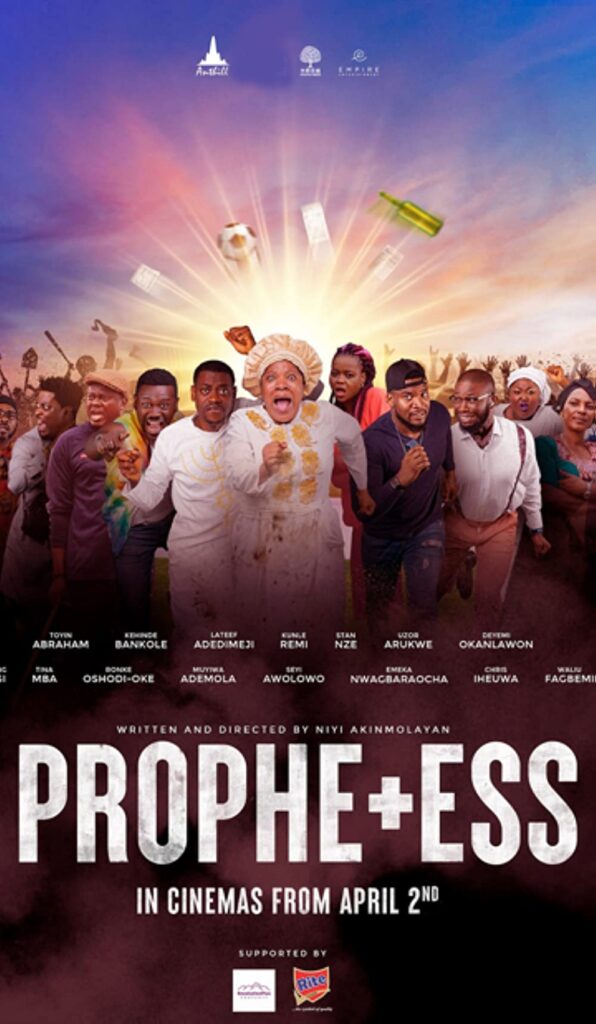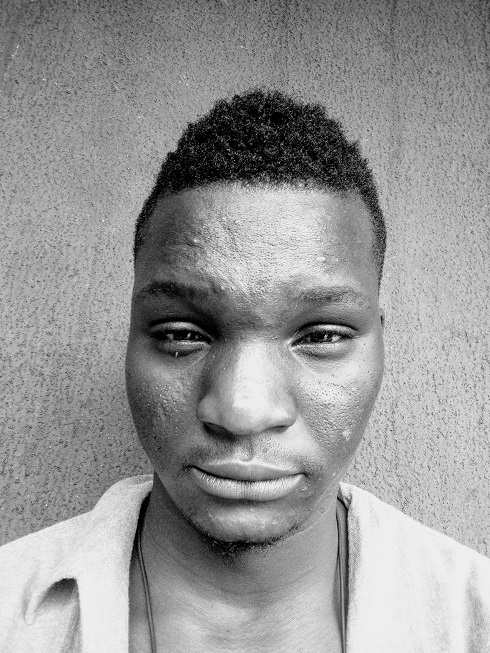Nigerian films have always had a thing for religious—and particularly Christian—leaders. Throughout the 2000s, they offered colonialist resistance to the supposedly diabolic practices of Nigerian traditional faiths. Of their characters, little was developed beyond blazing holiness. They made for attention-grabbing drama but also lazy psychological depictions of perhaps the most mystifying role in society.
Prophetess marks director Niyi Akinmolayan as among the finer creators of his generation. His earlier films—The Arbitration, The Wedding Party 2, and Chief Daddy, among them—tilted to the box-office, maximizing the flamboyant scenes and cathartic plots beloved by the majority of the Nigerian audience. (In-between these is the horrendous misfire that is Chief Daddy 2.) Prophetess, which stays in serious territory, is his career highlight.
A village near the southwestern city of Ibadan is the setting for this modernist portrayal of faith. When a young man is forced by his aunties to visit a church, he streams the interaction on social media. The church’s Prophetess Ajoke, played by Toyin Abraham, is asked to predict the outcome of a football match, and, a few hours later, her chosen team wins. Coupled with other unexpected outcomes, she becomes an Internet sensation.
Akinmolayan uses a new trope in films about faith, albeit with more complexity: con pastors. Through back stories, we see how Prophetess Ajoke suffered seizures as a child. Her condition makes her the primary recipient of her mother’s love, casting her elder sister Labake, played by Kehinde Bankole, in the unsavory role of a supporter. The sisters share an unsteady relationship, which dips when Ajoke steals Labake’s money, meant for her to start a better life in Lagos. These scenes are paired with the present story, where Labake’s money is again—this time by a family relative—used to bet in a local match. The furious woman soon finds out that almost the entire town has made that same bet, spurred by the Prophetess’ latest prediction.
As matchday pulls close, the film opens beautifully into the crafty world of sports betting. Suspecting a case of match fixing, the enterprising brand manager of the city’s premier betting company, a man named Eze-Ego Boss, played by Uzor Arukwe, constantly argues for the bet to be called off. Eze-Ego Boss eyes a clean sweep and makes concessions to ensure this. Among his tactics is bribing Deyemi Okanlawon’s Fogo Bombastic, a neighborhood thug whose boys also made the bet.
As Eze-Ego’s bribes tilt the game in his favor, the unexpected happens, and the question becomes tricky: is Prophetess Ajoke the real deal, or is it all a stroke of luck? An answer is somewhat posed by a social media influencer, in a poignant scene where he encourages Labake not to give up. “God is seeing us,” he says of their hard work.
The acting and cinematography of Prophetess gives it a rural spirit: the wooden churches, the zinc roofs, the red sands of Ibadan—everything lays out into an easily recognizable portrait. Acting-wise, there are few weak points. From the money-appraising act of Eze-Ego to the crazed loyalty of Labake, down to the humorous effrontery of Lateef Adedimeji’s Malaika and Stan Nze’s Buntus’ effeminacy, the presentations are varied. Even the physical disability of a coach richly amplifies the narrative. And, to cap it off, Abraham’s performance as Ajoke is vulnerable and comic-tinged, allowing the viewers to build different impressions of her.
Where a lesser filmmaker might have glossed over details, Akinmolayan gracefully engages the mundane. The result is that, even at its 2-hour runtime, Prophetess does not have an unnecessary scene. ♦


